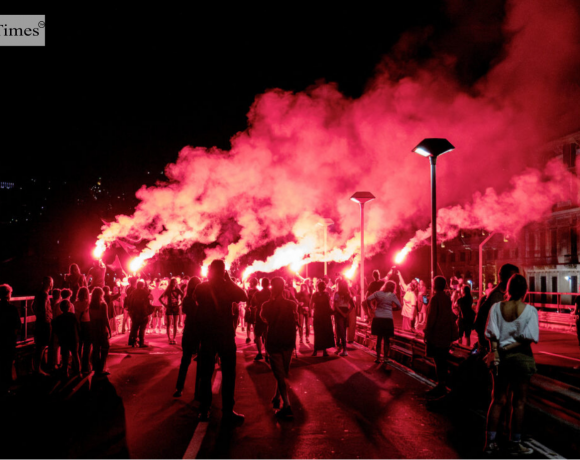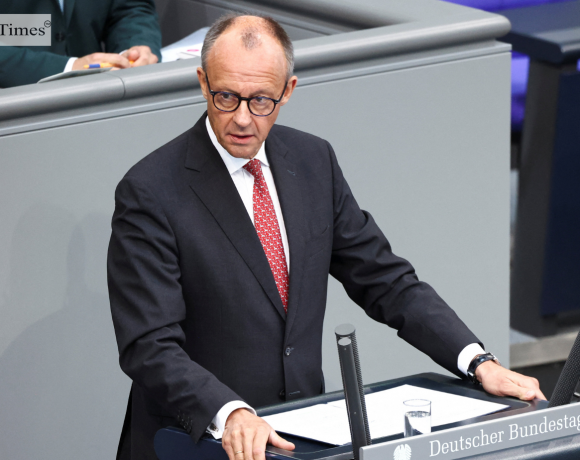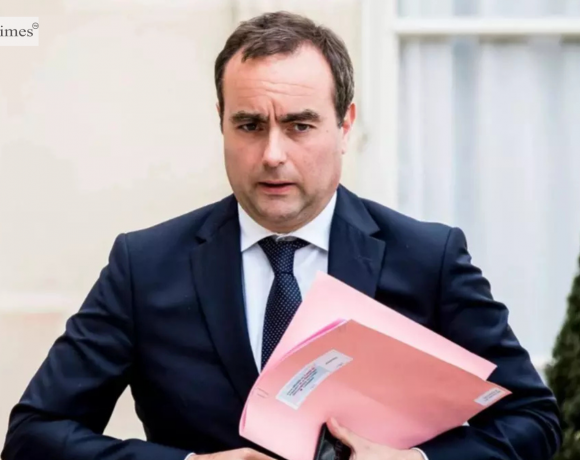
Striking dockworkers blocked access roads to major ports in Italy on Monday as unions staged a nationwide protest against Israel’s offensive in Gaza. Demonstrators said they aimed to prevent Italy from serving as a transit hub for arms and supplies to Israel, which is at war with Hamas. The action disrupted schools, public transport, and regional train services, while thousands joined rallies in cities including Genoa, Livorno, Trieste, and Naples.
Violence broke out in Milan, where police in riot gear clashed with pro-Palestinian demonstrators near the central station, using tear gas to disperse crowds. In Naples, protesters forced their way into the main railway station and briefly occupied tracks, delaying trains. Meanwhile, dockside protests saw Palestinian flags waved at port entrances, with the Autonomous Port Workers’ Collective calling the action an act of solidarity with Palestinians.
Prime Minister Giorgia Meloni’s right-wing government has stood firmly behind Israel and rejected recognition of a Palestinian state, unlike several other Western nations. Transport Minister Matteo Salvini downplayed the impact of the strikes, saying only a limited number of trains had been cancelled and accusing “far-left trade unionists” of trying to politicise the country’s workforce.
Pic Courtesy: google/ images are subject to copyright









